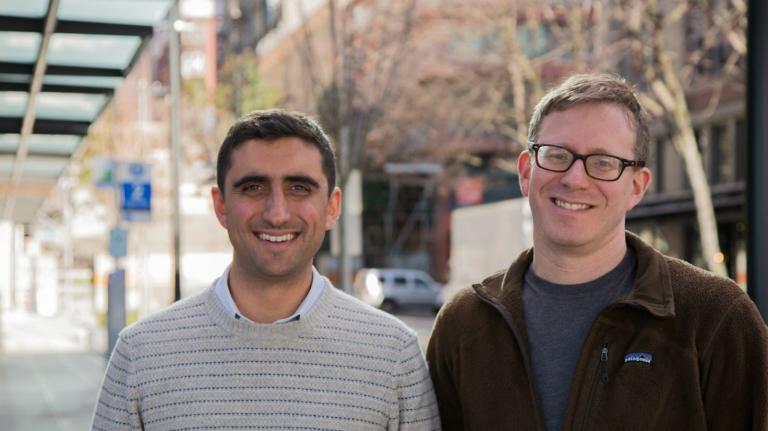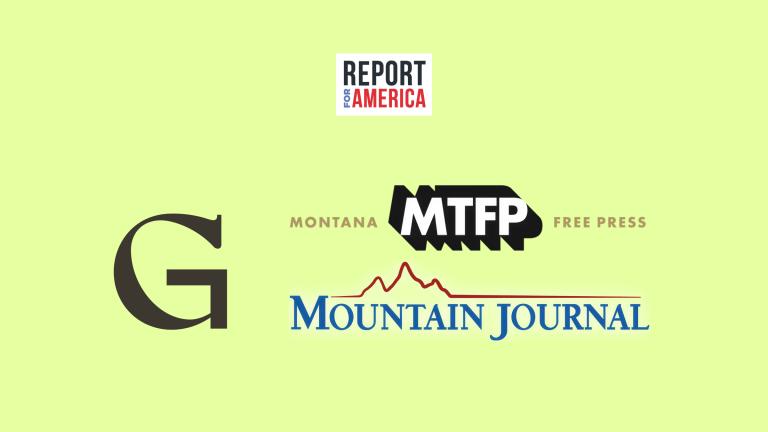When I started at Grist more than five years ago, I didn’t envision myself one day leading this venerable organization. But after working hard to elevate Grist’s journalism and helping to build a strong, mission-driven culture, taking the helm as its new CEO feels natural. Simultaneously, it also feels like the opportunity of a lifetime — and one I don’t take lightly. Let me share with you my thoughts on Grist’s potential over the coming years, and why I’ve come to care so deeply about this organization.
My primary focus at Grist over the past several years has been on transitioning our editorial program from its blog roots to an authoritative digital magazine. I think we’ve succeeded based on the in-depth reporting we’ve produced, awards we’ve been nominated for and won, the level of talent we’re now attracting, and the impact we’ve had. That work paralleled an organizational shift. Instead of sounding the alarm bells on climate change, we’re now the only media entity also focused on environmental justice and climate solutions –– and our strategy is resonating.
I believe we’re on a path to becoming the nation’s most influential climate voice, and the primary hub for climate media.
At Grist, we think of our work as a public good. For a brand that’s effectively chronicling the ideas, people, policies, technologies, and practices that could stop humanity from imperiling itself, finding as broad an audience as possible is critical. That mindset has made us a multi-platform publisher, with people encountering our content at Grist.org, on Apple News, on Instagram, and on the sites of our dozens of partners (from my hometown Atlanta’s NPR station, WABE, to the Anchorage Daily News, to our reliable Climate Desk companions, like Mother Jones, Slate, and Wired).
We also believe the messenger can be as important as the message, and so through our partnership with WABE, we’ve worked to syndicate high-quality climate news to local outlets all over the state of Georgia, reaching audiences Grist has never tapped into before. Soon we’ll be taking the partnership model we piloted in Georgia to other parts of the country, starting with states in the Midwest and the Plains.
And speaking of messengers, we have identified, through our Grist 50, some of the most important unheard voices solving the climate crisis. In the coming years, we intend to bring them to venues both physical and virtual to share the stories of their work to make a more just and sustainable world. We’ll continue to disrupt the climate fiction genre by finding and promoting authors who tell optimistic stories of a future we all want to reach for. We’ll continue, through our fellowship program and work with the Uproot Project, the environmental journalists of color network we helped kickstart, to ensure the people reporting on climate solutions and environmental injustices reflect the diversity of the U.S. and the globe. And we’ll double down on our recently honed ability to do top-rate accountability journalism, which now resides alongside our deeply reported, community-centered environmental justice coverage, and our thoughtful and honest appraisals of exciting, potential solutions to the climate crisis.
Our business model allows us to be promiscuous when it comes to partnerships, and so we attempt to find co-conspirators, collaborators, and syndicators for nearly everything we produce. We don’t limit our desire to work with others to simply journalistic outlets. We want to work with other media entities, conferences, and brands to create and host conversations, community engagements, and even must-attend festivals that examine the human response to climate change from all angles. That’s the power of nonprofit, mission-driven media.
I can’t think of a time that’s more worthy of Grist than the one we’re in right now. Through deep reporting, stylish, persuasive writing, eye-popping presentation, an optimism-only climate fiction contest, the definitive list of up-and-coming sustainability leaders, provocative conversations and events, and new and exciting audience engagement opportunities we’ve yet to brainstorm, this organization is ready and willing to meet the moment.
And I’m truly honored and humbled to lead that charge.
Primed for deeper impact
I’m so proud of the work that the editorial team has done over the past five years. It can be measured in accolades, like Grist’s newsroom being nominated for top honors at the National Magazine Awards or winning those honors from the Online Journalism Association and the Edward R. Murrow Awards. It can be measured in the talent we’ve nurtured and passed on with well wishes to the Washington Post, the Center for Public Integrity, and the upstart Capital B. Or in the talent we’ve attracted recently, from an award-winning ProPublica data journalist to a soon-to-be-published Simon and Schuster author. It can be measured in the tweets from Kamala Harris, letters to industrial polluters from Elizabeth Warren, and presentations on the Senate floor from Sheldon Whitehouse.
But those measurements go beyond the newsroom. It can be seen in the soon-to-be 400 sustainability leaders identified and elevated by our solutions lab Fix, in fields as disparate as agriculture and finance, who are putting in the work to try to change the world for the better. Or the more than 1,500 people who have offered submissions to our first two Imagine 2200 cli-fi contests. It can be measured in the dozens of people who signed up to be a part of our new Looking Forward Book Club. Or in the contributions from our steadily growing membership base. Or in the dozens of young journalists we’ve trained through our Fellowship program who now hold writing positions at other outlets. Or in the rapidly growing Uproot Project, which now has over 200 members.
But most of all, the success of Grist can be measured in the dedication to our workplace that newsroom members showed in unionizing while still working closely with management to take an already pretty great Grist and make it better.
The secret to our success
I have remained at Grist longer than at any of my other jobs because I found myself more personally and professionally invested in Grist than in any organization I’ve worked at before. And I’ve given so much to Grist primarily for one reason: I’ve always felt valued. First by former executive editor Scott Dodd, who hired me to build out Grist’s environmental justice coverage. Then by our board of directors, who welcomed me with open arms at my first board retreat in the fall of 2017. Then by our recently departed CEO, Brady Piñero Walkinshaw, who asked me to lead our newsroom and helped me build the confidence I needed to elevate Grist to the next level. Then by our development team who over the years taught me how to build deep, meaningful partnerships with funders. And throughout my time here by the staff, who offered me friendship from the beginning and allowed me to learn how to be an effective leader while on the job — encouraging my best attributes and calling me out on my bad habits.
As a result, Grist has become a second home for me. I care deeply about the health of the organization, its mission, and especially the people who work here.
I talked a bit about strategy in the sections above. It’s of course critical to what we do. But something I’ve learned over the years is that organizational culture is equally, if not more, important. The culture we’ve built here over the past five years is truly something special, and I want to work with my colleagues to continue to improve it.
At the root of all the important work we’ve done and will do is an effort to ensure that everyone who works at Grist feels what I feel on a daily basis: that they’re valued.




